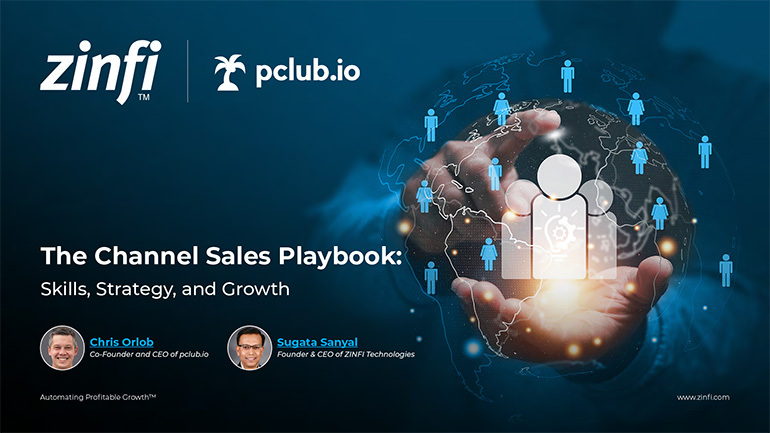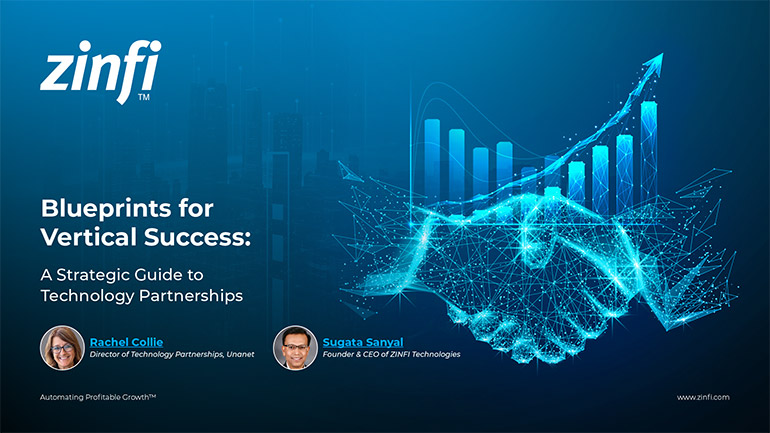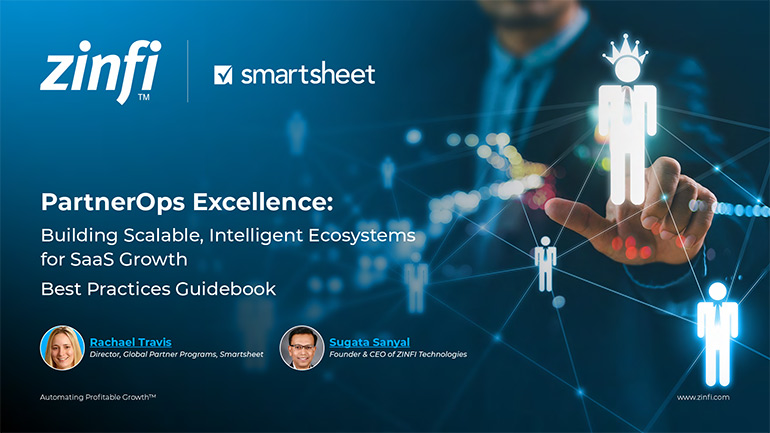Glossary - What is - Channel Ecosystem Software
What is Channel Ecosystem Software?
Channel ecosystem software is a suite of digital tools designed to streamline and optimize the management of a company’s channel partners, including distributors, resellers, and other intermediaries. This software provides comprehensive solutions for automating partner relationship management (PRM), marketing development funds (MDF) management, and sales enablement, among other functions. By integrating various aspects of channel management into a single platform, businesses can enhance their collaboration with partners, improve operational efficiency, and drive revenue growth.
In partner ecosystem management and partner management automation, channel ecosystem software plays a pivotal role. It enables organizations to maintain a centralized repository of partner data, track partner performance, and facilitate seamless communication and collaboration. The automation capabilities reduce manual tasks, allowing channel managers to focus on strategic initiatives. This software also helps distribute marketing assets effectively, track MDF usage, and measure the ROI of channel programs, ensuring that partners are aligned with the company’s goals and objectives.
Key Takeaways:
- Enhanced Partner Collaboration: Channel ecosystem software facilitates improved collaboration between a company and its partners. Partners can work more efficiently and effectively by providing a unified platform for communication, resource sharing, and project management. For example, ZINFI’s Unified Partner Management (UPM) platform offers tools for partner portal management, training, and certification, ensuring partners have the necessary resources to succeed. This collaborative environment leads to better alignment and stronger relationships within the channel ecosystem.
- Streamlined Operations: The automation capabilities of channel ecosystem software significantly reduce the administrative burden associated with managing channel partners. Tasks such as onboarding, performance tracking, and compliance monitoring are automated, allowing channel managers to focus on strategic activities. ZINFI’s platform, for instance, automates partner onboarding processes, ensuring a smooth and efficient integration of new partners into the ecosystem.
- Improved Data Management and Analytics: Effective data management is crucial for making informed decisions in channel management. Channel ecosystem software provides robust data analytics and reporting tools that offer insights into partner performance, sales trends, and marketing effectiveness. ZINFI’s analytics capabilities enable companies to track Key Performance Indicators (KPIs) and adjust their strategies accordingly. This data-driven approach helps optimize channel programs and maximize ROI.
- Increased Marketing Efficiency: Channel ecosystem software enhances the efficiency of marketing efforts by providing tools for creating, distributing, and tracking marketing assets. ZINFI’s platform includes comprehensive Marketing Development Funds (MDF), allowing companies to allocate funds strategically and monitor usage. This ensures that marketing resources are utilized effectively to support partner-led campaigns and drive demand generation.
- Scalability and Flexibility: As businesses grow, their channel management needs to evolve. Channel ecosystem software is designed to scale with the industry, accommodating an increasing number of partners and expanding functionalities. ZINFI’s modular approach allows companies to add new features and capabilities as needed, ensuring that the software remains aligned with their growth trajectory. This scalability ensures that companies can continue to optimize their channel ecosystem as they expand.
Summary of Key Takeaways:
Channel ecosystem software enhances partner collaboration, streamlines operations, and improves data management, resulting in more effective marketing efforts and scalable solutions. By leveraging platforms like ZINFI’s Unified Channel Management, businesses can automate critical processes, gain valuable insights through robust analytics, and ensure efficient utilization of marketing resources. These benefits collectively drive better alignment, stronger relationships, and higher ROI within the channel ecosystem.
Key Examples:
- Automotive Manufacturing: Channel ecosystem software manages relationships with distributors and dealerships in the automotive sector. It ensures that marketing materials are consistently branded and sales training is uniformly administered across all partner locations. This software also helps track inventory and sales performance, enabling manufacturers to optimize their supply chain and respond to market demand more effectively.
- Consumer Electronics: For consumer electronics companies, channel ecosystem software streamlines the distribution of product information and promotional materials to retailers. It facilitates real-time communication and collaboration, quickly disseminating product updates and marketing campaigns. This results in better-aligned sales efforts and improved customer satisfaction as partners are well-informed and equipped to sell the latest products.
- Energy Production: In the energy sector, channel ecosystem software aids in managing a diverse range of partners, including equipment suppliers and service providers. It enables efficient tracking of partner performance and compliance with regulatory standards. The software also supports the distribution of marketing funds for regional campaigns, ensuring that all partners are aligned with the company’s sustainability goals and market strategies.
- Financial Services: Financial services firms use channel ecosystem software to manage relationships with independent financial advisors and brokers. The software provides tools for compliance management, ensuring that all partners adhere to regulatory requirements. It also supports distributing marketing materials and training programs, helping partners stay informed about new financial products and services.
- Food and Beverage: In the food and beverage industry, channel ecosystem software helps manage relationships with distributors, wholesalers, and retailers. It streamlines the distribution of marketing assets and promotional materials, ensuring all partners can access the latest information. The software also supports performance tracking and compliance monitoring, helping companies maintain quality standards across the supply chain.
- Healthcare Services: Healthcare organizations use channel ecosystem software to manage relationships with medical equipment suppliers, pharmaceutical companies, and service providers. The software ensures that all partners comply with industry regulations and standards. It also facilitates the distribution of educational materials and marketing campaigns, helping partners to stay informed about new products and services.
- Information Technology: In the IT industry, channel ecosystem software is crucial for managing relationships with resellers, system integrators, and service providers. It supports the distribution of product updates, training programs, and marketing campaigns. The software also provides robust analytics tools, enabling companies to track partner performance and optimize their channel strategies.
- Pharmaceutical Development: Pharmaceutical companies use channel ecosystem software to manage relationships with research partners, suppliers, and distributors. The software facilitates compliance with regulatory standards and supports distribution of marketing and educational materials. It also helps track partner performance and manage research collaborations effectively.
- Retail Industry: In the retail sector, channel ecosystem software aids in managing relationships with suppliers, distributors, and franchisees. It streamlines the distribution of marketing materials and ensures consistent branding across all partner locations. The software also supports inventory management and sales tracking, helping retailers optimize their operations and improve customer satisfaction.
- Telecommunications: Telecommunications companies use channel ecosystem software to manage relationships with resellers, service providers, and technology partners. The software supports distributing product information, training programs, and marketing campaigns. It also provides tools for tracking partner performance and ensuring compliance with industry standards, helping companies maintain a competitive edge in the market.
Conclusion:
Channel ecosystem software is vital for managing and optimizing relationships with various partners across various industries. It enhances collaboration, streamlines operations, improves data management, and increases marketing efficiency, all while offering scalability to support business growth. By leveraging such software, companies can automate critical processes, gain valuable insights, and ensure efficient utilization of resources, leading to stronger relationships and higher ROI within their channel ecosystem.
In the automotive manufacturing industry, it ensures consistent branding and optimized supply chains. Consumer electronics companies benefit from real-time communication and collaboration with retailers. Energy production firms use it to manage regulatory compliance and regional marketing campaigns. Financial services companies ensure regulatory adherence and efficient distribution of marketing materials. Food and beverage companies maintain quality standards and streamline promotional efforts. Healthcare organizations manage compliance and distribute educational materials. IT companies optimize their channel strategies with robust analytics. Pharmaceutical firms facilitate regulatory compliance and research collaborations. Retailers ensure consistent branding and inventory management, while telecommunications companies maintain a competitive edge through efficient partner management.
In summary, channel ecosystem software is essential for businesses aiming to enhance their partner relationships and drive growth in a competitive market.
Associated Keywords:















